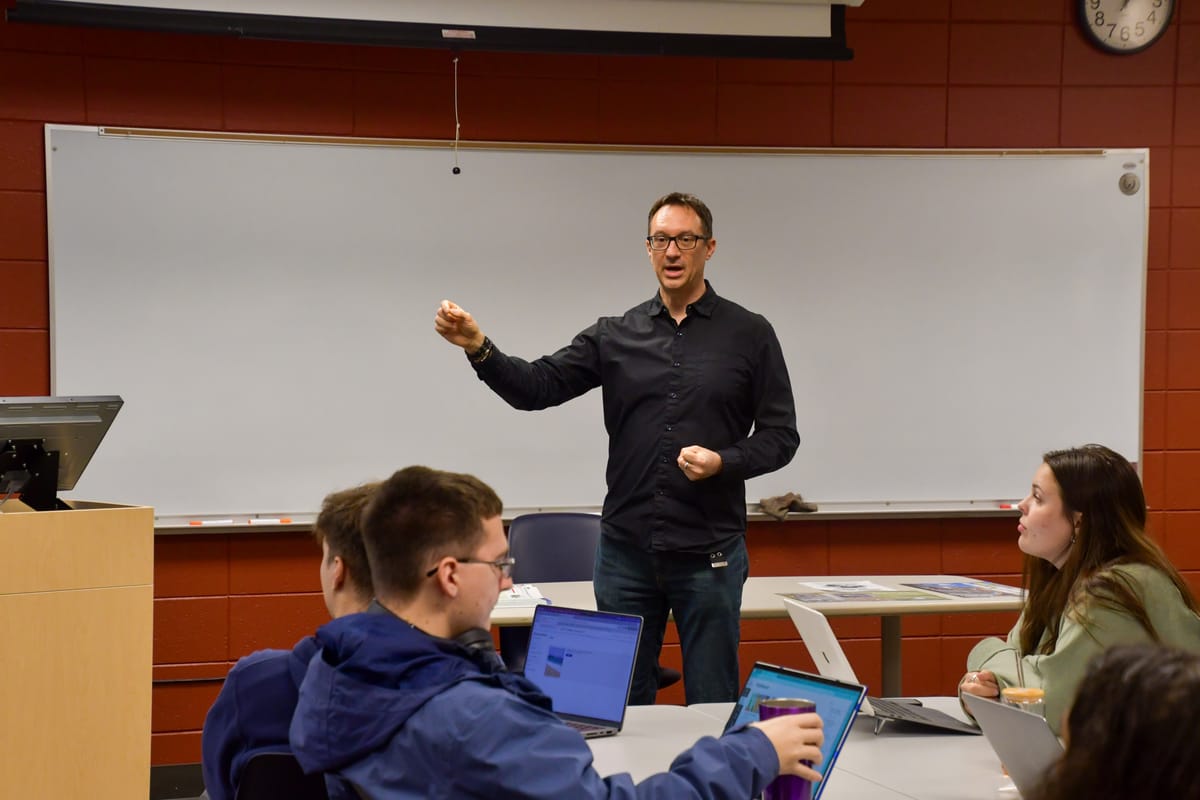SOPHIA, FYS committees evaluate core curriculum

As the SOPHIA Core Curriculum approaches its 10-year mark, the SOPHIA and First-Year Seminar committees plan to evaluate Augustana’s core curriculum and student learning outcomes.
The Undergraduate Curriculum Council, chaired by Spanish professor Michael Rueter, tasked the SOPHIA and First-Year Seminar committees during the 2022-2023 academic year to look at the core curriculum — general education courses and FYS — and suggest changes based on what they find.
The SOPHIA core curriculum was adopted in 2015 prior to the COVID-19 pandemic. Rueter said during the pandemic, Augustana experienced a drop in staff — thus, fewer student seats were available in classes compared to previous years.
In the spring of 2020, following the World Health Organization’s classification of COVID-19 as a pandemic, the SOPHIA committee, UCC and Augustana faculty voted in favor of a modified SOPHIAflex curriculum.
Physics professor Nathan Grau, chair of the SOPHIA Committee, said SOPHIAflex has given students the opportunity to choose six of eight general education areas instead of all eight and includes the addition of ethics- and communications-component courses. SOPHIAflex gave mid-pandemic students the opportunity to be more flexible, as the name suggests.
Concurrently, the UCC was starting to evaluate how well the SOPHIA curriculum was working with fewer staff members.
“We were having trouble delivering all of what we wanted to through it,” Rueter said.
Still witnessing some of the effects of the pandemic, evaluating the SOPHIA and SOPHIAflex curricula seemed important to fit the needs of students, faculty and the institution, Grau said.
According to Grau, the SOPHIAflex curriculum will sunset in the 2024-2025 academic year, with a potentially modified SOPHIA curriculum being reinstated.
Narrowing student learning outcomes
As well as making the curriculum flexible for students and faculty, Rueter said the UCC also tasked the SOPHIA committee to evaluate student learning outcomes in order to remain accredited by the Higher Learning Commission.
Accreditation by the HLC means federal recognition as a post-secondary institution by the U.S. Department of Education. Without accreditation, students may be unable to apply for federal financial aid, scholarships or transfer credits between institutions.
Rueter said he believes a lot of what makes Augustana’s general education important to discuss is its complexity, keeping in mind all of the interrelated moving cogs of liberal arts.
“We have matters related to personnel and staffing, we have matters related to the number of students we need to get through that gen ed, we have matters related to what we say the gen ed does and how we measure it and we have matters related to what the [HLC] wants to ensure that we are doing in order to maintain our accreditation as a university,” Rueter said.
Prior to Feb. 7, the SOPHIA committee found that the SOPHIA curriculum had five times more student learning outcomes than similar institutions’ curricula. Upon discovering this, the committee rewrote the student learning outcomes, narrowing them down from 37 to three: knowledge, skills and discernment and wisdom.
Revisions to the student learning outcomes were approved on Feb. 7.
The FYS committee will look at the components of FYS and First-Year Experience, which includes orientation and courses specific to students' first year.
Building a new curriculum
On its journey to building a new and modified core curriculum, Grau said the SOPHIA Committee will also consider how much choice students will have in building their curriculum, the size and quantity of credits the curriculum will take to complete and the ratio of general education classes to major, minor and elective courses.
“This is a real opportunity to do something,” Grau said. “How long it will take, I’m not sure. I know things are going to change. I just don’t know how yet.”
By the end of the current academic year, Grau said the SOPHIA committee plans to propose modifications to the SOPHIA curriculum. The committees are still deciding what those alternatives could look like.
Going from the previous general education curriculum to SOPHIA took a number of years.
Grau said that when he was hired in 2010, the general education committee had already been talking about potential changes. Faculty officially voted on the new SOPHIA core in 2015, the process, in all, taking more than five years.
After the UCC tasked the SOPHIA and FYS committees with evaluating the curriculum, they had a year and a half to take a deeper dive and come up with potential alterations.
Fourth-year student Schaler Starks, an Augustana Student Association senator on the curriculum committee, said she hopes the “educational content will be more tied to what students are actually getting out of [the general education curriculum].”
“I think sometimes it doesn't translate to professors that we are interested in learning, but that we like to see why we are learning it and we like to see diversity and culture included in that learning,” Starks said.
ASA had two public forums on Nov. 29 and Dec. 6 for students to voice their opinions about a modified core curriculum. Starks said no students, besides those involved in ASA, showed up to the forums. ASA created a form as an asynchronous option to try and get the student body's opinion. Starks said there were minimal submissions.
Rueter, Grau and Starks said they believe student opinion on the core curriculum is important. Grau said faculty care deeply about students and what they are learning.
When it comes to general education at a liberal arts university, Grau said he thinks it gets a little more complicated than just adopting a new curriculum out of necessity.
“The way that SOPHIA is set up right now is a bunch of boxes [that need to be checked],” Grau said. “Students always have questions why. Those are very valid questions, and if we don’t have good answers for them, then we are doing students a disservice. There has to be a good reason.”



